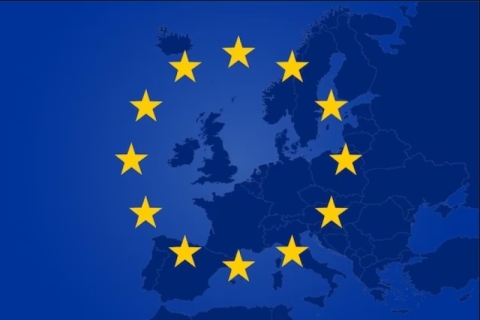Politics
Europe celebrates this Thursday the 74th anniversary of the Schuman Declaration
Background of the current European Union
USPA NEWS -
74 years ago, on May 9, 1950, Robert Schuman, then French Minister of Foreign Affairs, pronounced the Declaration that bears his name. In it he proposed the creation of a European Community whose members would pool the production of coal and steel (ECSC). The ECSC, originally formed by France, West Germany, Italy, the Netherlands, Belgium and Luxembourg, was the first of a series of supranational institutions that would become what is today the European Union.
At that time in history, five years after the end of World War II, European nations were still struggling to overcome its ravages. European governments, determined to avoid another war, concluded that by pooling coal and steel production, war between historic rivals France and Germany would be "not only unthinkable, but materially impossible." It was rightly thought that the fusion of their economic interests would contribute to raising the standard of living of their citizens and would constitute the first step towards a more united Europe. Accession to the ECSC was open to other countries.
The speech of the French Minister of Foreign Affairs on May 9, 1950, is considered the first precedent of the current European Union. Robert Schuman presented his vision of a Europe united by economic interests: “The French Government proposes that the entire Franco-German production of coal and steel be submitted to a common High Authority, in an organization open to the other countries of Europe. The pooling of coal and steel production will immediately guarantee the creation of common bases for economic development, the first stage of the European federation, and will change the destiny of those regions, which for so long have been dedicated to the manufacture of weapons, of which they themselves have been the first victims,” said Schuman.
“Through the sharing of basic productions and the creation of a new High Authority, whose decisions will be binding on France, Germany and the countries that join, this proposal will lay the first concrete foundations of a European federation essential for the preservation of peace,” he added. He was laying the foundations of the future European Union.
But who was Robert Schuman, the “father” of the European Union as we know it today? Robert Schuman participated as a member of the French Resistance in World War II. He was subsequently captured and imprisoned by the Nazis. Before the war, he had been active in politics as a member of the French Parliament.
A German born in Luxembourg, Schuman acquired French nationality when, in 1919, France regained the region of Alsace-Lorraine, where he lived. During World War II, De Gaulle, the French leader in exile, invited him to come to London to join his government. After the war, he returned to national politics, holding various top-level positions and being one of the main negotiators of important treaties and initiatives, such as the Council of Europe, the Marshall Plan and NATO, always with the aim of improving cooperation within the Western alliance and unite Europe.
In collaboration with Jean Monnet, he drew up the internationally recognized Schuman Plan, which was published on May 9, 1950, a date that is today considered the day of birth of the European Union and is celebrated each year as Europe Day.
Liability for this article lies with the author, who also holds the copyright. Editorial content from USPA may be quoted on other websites as long as the quote comprises no more than 5% of the entire text, is marked as such and the source is named (via hyperlink).






